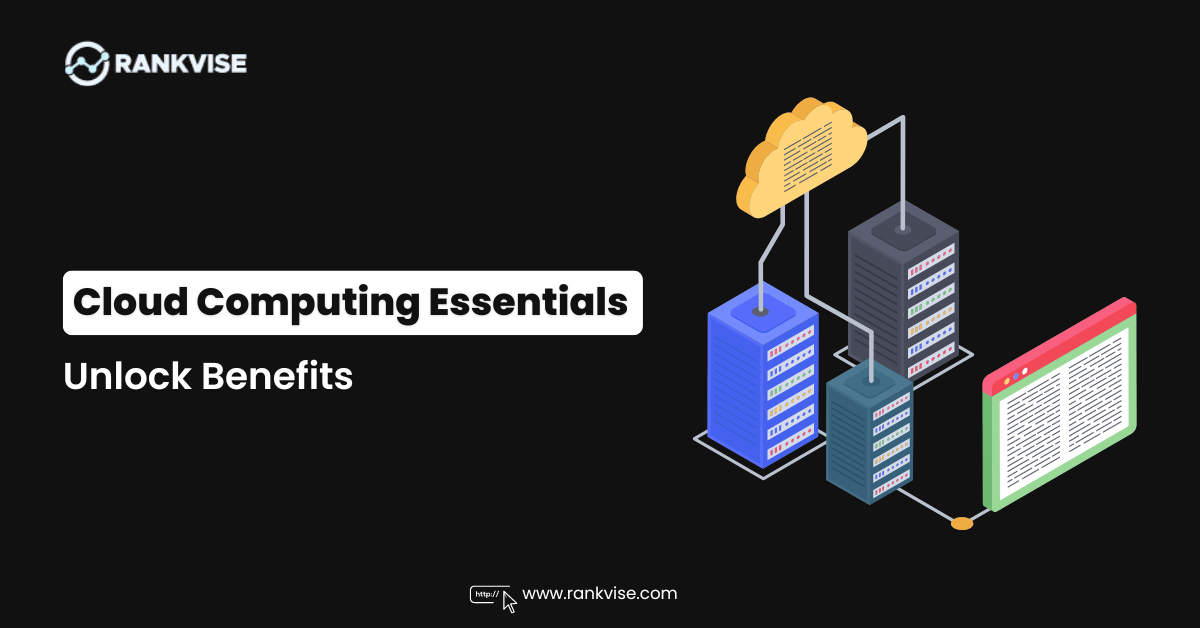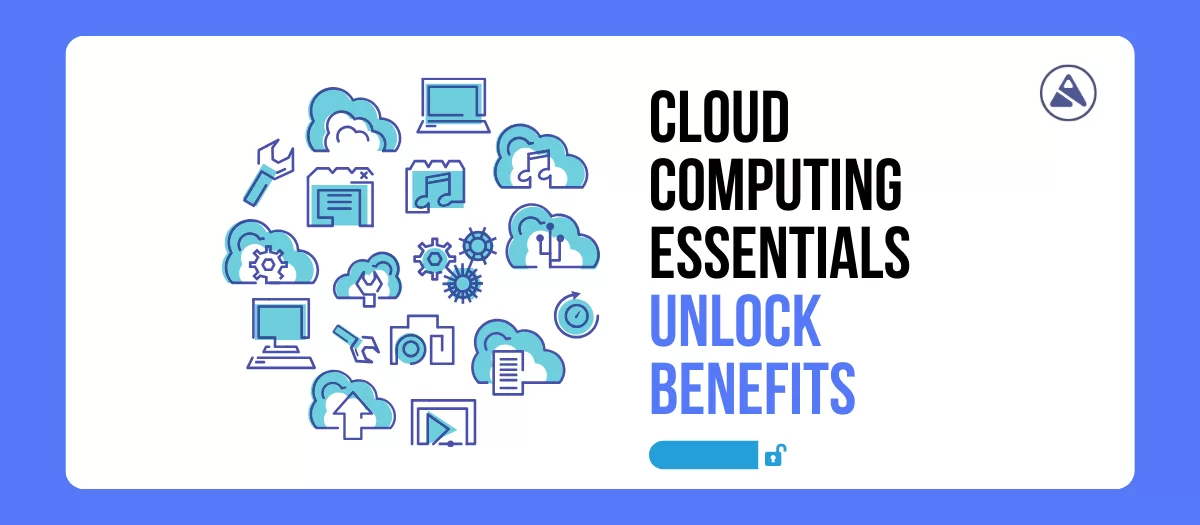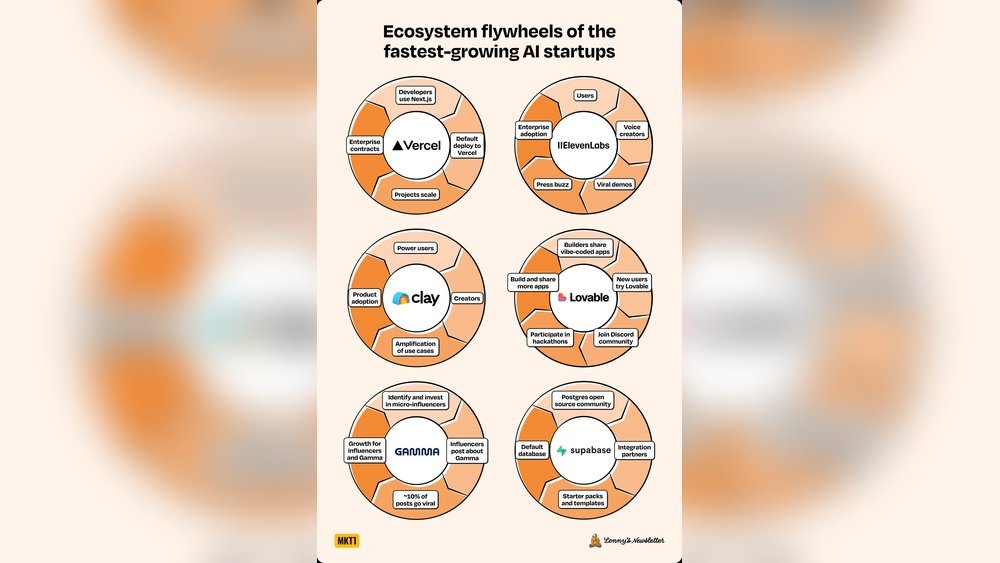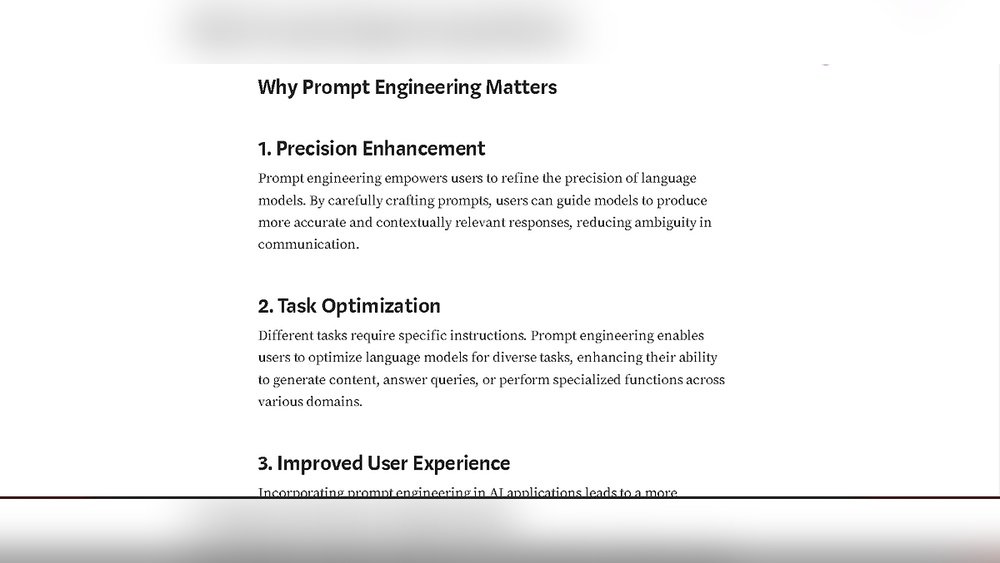Cloud Computing Essentials Unlock Benefits is transforming the way businesses operate. It offers flexibility, scalability, and cost efficiency.
But what exactly are the essentials you need to know to unlock these benefits? Understanding cloud computing is crucial in today’s digital age. Businesses of all sizes are leveraging cloud services to enhance their operations. The cloud allows you to store and access data over the internet, reducing the need for physical storage.
It also provides on-demand access to resources like servers, databases, and software. This means you can scale your operations up or down quickly, based on demand. Moreover, using cloud services can significantly cut costs by eliminating the need for expensive hardware and maintenance. By grasping these cloud computing essentials, you’ll be well on your way to harnessing its full potential.
Introduction To Cloud Computing
Are you curious about cloud computing? It might sound like a technical term, but it’s actually something that many of us use daily without realizing it. From storing photos online to collaborating on documents, cloud computing is a part of our everyday lives. Let’s dive into the essentials of cloud computing to understand its benefits and how it can revolutionize the way you work and store data.
What Is Cloud Computing?
Cloud computing involves using the internet to access and store data and applications. Instead of keeping everything on your computer’s hard drive, you use remote servers hosted on the internet.
This means you can access your data from anywhere, anytime. Imagine working on a project at home, then picking up right where you left off at the office. It’s convenient and efficient.
Cloud computing services usually come in three forms: Infrastructure as a Service (IaaS), Platform as a Service (PaaS), and Software as a Service (SaaS). Each offers different levels of control and flexibility, catering to various needs.
Brief History
The concept of cloud computing isn’t entirely new. It dates back to the 1960s when computer scientist John McCarthy suggested that computing could be sold like a utility.
However, it wasn’t until the late 1990s and early 2000s that the technology advanced enough to make this idea a reality. Companies like Amazon and Google began offering cloud services, making it accessible to businesses and individuals.
Today, cloud computing is ubiquitous. From streaming services to online banking, it’s integrated into many aspects of our lives. And it’s continually evolving, promising even more innovative solutions in the future.
Have you ever used cloud storage for your photos or documents? How has it changed the way you manage your data? Share your thoughts in the comments below!

Credit: www.purevpn.com
Types Of Cloud Services
Understanding the types of cloud services is crucial for anyone interested in cloud computing. These services offer various solutions to meet different business needs. The three main types of cloud services are Infrastructure as a Service (IaaS), Platform as a Service (PaaS), and Software as a Service (SaaS).
Infrastructure As A Service (iaas)
IaaS provides virtualized computing resources over the internet. Businesses can rent servers, storage, and networking resources. This eliminates the need to buy physical hardware. It offers flexibility and scalability. Companies can adjust resources based on demand. Examples of IaaS providers include Amazon Web Services (AWS) and Microsoft Azure.
Platform As A Service (paas)
PaaS offers a platform allowing developers to build, test, and deploy applications. It includes infrastructure but also middleware, development tools, and database management systems. Developers can focus on coding without worrying about infrastructure management. PaaS helps to speed up the development process. Popular PaaS providers are Google App Engine and Heroku.
Software As A Service (saas)
SaaS delivers software applications over the internet. Users can access software through a web browser. There is no need to install or maintain software on individual devices. SaaS is cost-effective and easy to use. Common examples include Google Workspace and Salesforce.
Benefits Of Cloud Computing
Cloud Computing Essentials Unlock Benefits has transformed the way businesses operate. It offers numerous benefits that help companies grow and adapt to changing needs. Understanding these benefits can lead to smarter decisions and better outcomes.
Cost Efficiency
Cloud computing reduces the need for expensive hardware. Businesses pay only for the resources they use. This model lowers upfront costs and ongoing maintenance expenses. It allows companies to allocate funds more efficiently.
Scalability
One of the key advantages of cloud computing is scalability. Businesses can easily adjust resources based on demand. This means they can handle peak times without over-investing in hardware. It ensures optimal performance without waste.
Flexibility
Cloud services offer great flexibility. Employees can access data and applications from anywhere. This supports remote work and collaboration. It boosts productivity and allows for better work-life balance.
Disaster Recovery
Cloud computing enhances disaster recovery plans. Data is stored in multiple locations, reducing the risk of loss. In case of an emergency, businesses can quickly restore operations. It provides peace of mind and protects valuable information.
Cloud Deployment Models
Understanding cloud deployment models is crucial for businesses. Each model offers unique advantages. Choosing the right model can optimize your operations.
Public Cloud
Public cloud services are provided by third-party providers. They offer resources like storage and applications over the internet. These services are accessible to anyone. Public clouds are highly scalable. Businesses can adjust resources according to needs. Security is managed by the provider. Costs are typically lower compared to other models. It’s suitable for smaller businesses or projects with fluctuating demands.
Private Cloud
Private clouds are dedicated to a single organization. They offer enhanced security and control. Resources are managed internally or by a third-party vendor. Private clouds are ideal for businesses with strict security requirements. They provide customized solutions tailored to specific needs. Costs can be higher due to dedicated resources. Larger organizations often prefer private clouds for sensitive data.
Hybrid Cloud
Hybrid clouds combine public and private cloud features. They offer flexibility and control. Businesses can keep sensitive data in private clouds. Less critical data can be stored in public clouds. Hybrid clouds enable seamless data movement between environments. This model supports diverse workloads and complex requirements. Costs are balanced by optimizing resource use. It’s suitable for businesses seeking scalability and security.
Security In Cloud Computing
Cloud Computing Essentials Unlock Benefits ensure robust security measures. Data encryption and regular backups protect sensitive information. Trustworthy cloud providers offer secure access to resources.
Security in Cloud Computing
When you think about cloud computing, security might be one of your top concerns. After all, storing data and running applications over the internet involves certain risks. However, the cloud also provides robust security measures that can protect your data better than traditional methods.
Data Protection
Protecting your data is crucial. Cloud service providers use advanced encryption techniques to keep your information safe.
For example, when you upload a file, it gets encrypted before it leaves your device. This means even if someone intercepts it, they can’t read it without the encryption key.
Additionally, many providers offer multi-factor authentication. This ensures only authorized users can access your sensitive data.
Compliance
Meeting compliance standards is another critical aspect. Different industries have different regulations to follow.
Cloud providers often comply with various international and local regulations, helping you meet your legal requirements.
For instance, if you handle healthcare data, you need to comply with HIPAA. Many cloud services are designed to meet these specific needs, making it easier for you to stay compliant.
Have you ever thought about how much time and resources you spend on compliance? Using cloud services can significantly reduce this burden.
In conclusion, understanding cloud security can help you make better decisions for your business. You get to enjoy the benefits of the cloud while knowing your data is safe and your compliance needs are met.
What are your biggest concerns about cloud security? Have you found solutions that work for you? Share your thoughts in the comments below!
Choosing The Right Cloud Provider
Choosing the right cloud provider is crucial for your business. The decision impacts performance, security, and cost. Here’s how to make an informed choice.
Key Factors
When selecting a cloud provider, consider several key factors. First, evaluate the provider’s reliability and uptime guarantees. You want a service that minimizes downtime.
Next, examine the security measures offered. Look for encryption, firewalls, and compliance certifications. Your data’s safety should be a top priority.
Cost is another critical aspect. Compare pricing models and hidden fees. Ensure the provider fits your budget without compromising quality.
Top Providers
Some top cloud providers include Amazon Web Services (AWS), Microsoft Azure, and Google Cloud Platform. AWS is known for its extensive range of services.
Microsoft Azure offers great integration with other Microsoft products. If your business already uses Microsoft software, Azure might be a seamless fit.
Google Cloud Platform is excellent for analytics and machine learning. If your business relies heavily on data analysis, consider Google Cloud.
Have you ever experienced a sudden outage with your current cloud provider? It can be frustrating and costly. Researching your options now can prevent future headaches.
Choosing the right cloud provider can propel your business forward. Don’t rush the decision. Consider reliability, security, and cost. Examine top providers like AWS, Azure, and Google Cloud. Your choice today impacts your success tomorrow.
Implementing Cloud Solutions
Implementing cloud solutions is a crucial step for businesses looking to modernize their IT infrastructure. It involves careful planning, a clear strategy, and a well-executed migration process. These steps ensure a smooth transition to the cloud, maximizing the benefits and minimizing disruptions.
Planning And Strategy
The first step in implementing cloud solutions is developing a detailed plan. This plan should outline your business goals and how cloud technology will help achieve them. Identify the applications and data you want to move to the cloud. Assess the current infrastructure and determine what changes need to be made. Consider security requirements and compliance needs.
Create a timeline for the migration. Allocate resources and assign responsibilities. Make sure everyone involved understands their roles. Establish metrics to measure success. This structured approach ensures a seamless transition.
Migration Process
The migration process involves moving applications and data to the cloud. Start with less critical applications. This allows the team to gain experience and address any issues early. Use automated tools to speed up the process and reduce errors.
Ensure data is backed up before starting the migration. This prevents data loss. Test applications in the cloud environment. Check for performance and compatibility. Make adjustments as needed. Monitor the process closely and communicate with stakeholders regularly. This keeps everyone informed and ensures a smooth migration.

Credit: rankvise.com
Future Of Cloud Computing
The future of cloud computing holds many exciting possibilities. As technology advances, businesses and individuals will see new ways to store and process data. Cloud computing will continue to evolve. Understanding its future trends and challenges is important for anyone using or considering cloud services.
Emerging Trends
Several trends are shaping the future of cloud computing. One major trend is the rise of edge computing. This technology brings data processing closer to the source. It reduces latency and improves performance. Another trend is the growth of hybrid cloud solutions. These combine private and public clouds. They offer flexibility and control.
Serverless computing is also gaining popularity. It allows developers to focus on code. They don’t worry about managing servers. Artificial intelligence (AI) and machine learning (ML) are becoming integrated into cloud services. They offer smart insights and automation. Multi-cloud strategies are on the rise. Companies use multiple cloud providers. This approach reduces reliance on a single vendor.
Potential Challenges
Despite the benefits, Cloud Computing Essentials Unlock Benefits faces challenges. Security remains a top concern. Protecting data in the cloud is critical. Companies must ensure their data stays safe. Compliance with regulations is another challenge. Different regions have different rules. Adhering to them can be complex.
Managing costs is also an issue. Cloud services can become expensive. Companies need to monitor and optimize their usage. Downtime and service outages can impact business operations. Providers must ensure high availability. Data privacy is a growing concern. Users want to know their data is handled responsibly.

Credit: www.aishco.com
Frequently Asked Questions
What Are The Cloud Computing Essentials Unlock Benefits?
Cloud Computing Essentials Unlock Benefits offers scalability, cost savings, and flexibility. It enhances collaboration, data security, and disaster recovery. Businesses can access advanced technologies and improve efficiency.
What Are The 5 Cloud Computing Essentials Unlock Benefits?
The 5 essentials of Cloud Computing Essentials Unlock Benefits are on-demand self-service, broad network access, resource pooling, rapid elasticity, and measured service.
What Are 5 Advantages Of Cloud Storage?
Cloud storage offers five key advantages: easy accessibility, cost savings, data backup, scalability, and collaboration efficiency.
What Are The Security Benefits Of Cloud Computing?
Cloud computing offers enhanced security measures. Data encryption, regular updates, and robust backup systems protect sensitive information. Real-time monitoring detects threats quickly.
Conclusion
Cloud Computing Essentials Unlock Benefits offers many essential benefits for businesses and individuals. It enhances efficiency, reduces costs, and provides flexibility. Small and large businesses can scale easily with cloud services. Data security and backups ensure peace of mind. Users can access information from anywhere, anytime.
Embracing cloud computing is a smart move. Start exploring its benefits today. Your business future depends on it.







4 responses to “Cloud Computing Essentials Unlock Benefits: Transform Your Business”
[…] […]
[…] April 15, 2025 […]
[…] businesses stay competitive. Understanding their roles is essential for future growth. Explore how cloud computing and edge AI work together. Discover the potential they hold for innovation and efficiency. The […]
[…] to deepen your knowledge, this review will help you understand the value of Purdue Global’s Cloud Computing offerings. Let’s dive in and see what makes this program stand […]